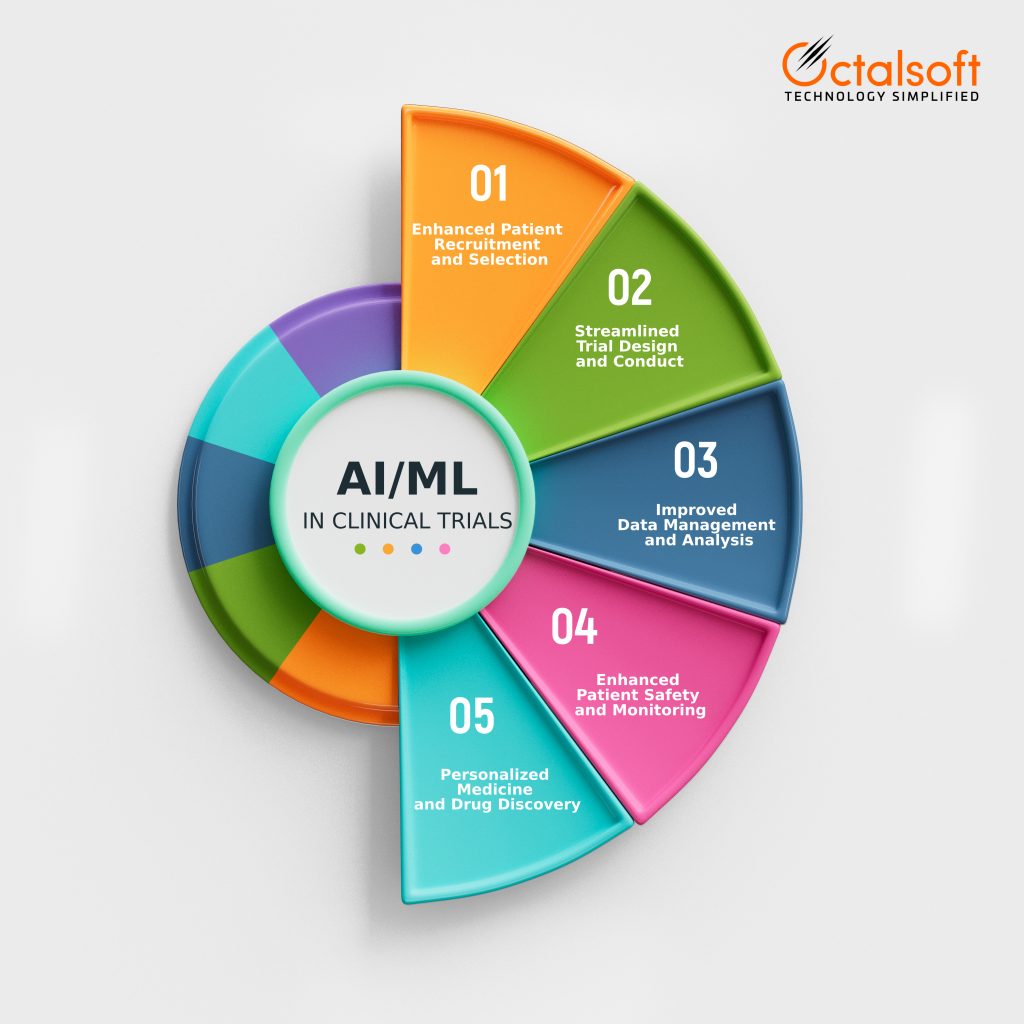For decades, the path to bringing new drugs and treatments to market has been arduous and time-consuming. Clinical trials, the cornerstone of evidence-based medicine, often face challenges in recruitment, cost, and efficiency. However, a revolutionary force is emerging with the potential to transform this landscape: Artificial Intelligence (AI) and Machine Learning (ML).
According to recent estimates, the generative artificial intelligence (Generative AI) market for clinical trials worldwide will exceed one billion U.S. dollars by 2032. Compared to 140 million dollars in 2022, that would be a compound annual growth rate of nearly 24 percent.
This blog post explores the transformative power of AI and ML in clinical trials, highlighting their impact on various aspects of the process and ushering in a new era of faster, more efficient, and cost-effective drug development.
"The excitement surrounding the capabilities and utilities of AI/ML signifies a huge step forward in clinical trial data acquisition and management. Most of us are only now getting a sense of how far AI/ML has progressed, yet it is already redefining important milestones in clinical trials. "
Krunal Bhatt, Technical Manager, Octalsoft
Revolutionizing Clinical Trials: The Impact of AI and ML
The influence of AI and ML extends across various stages of clinical trials, offering significant benefits for both researchers and participants. Let's delve into some key areas where these technologies are making a significant impact:

1. Enhanced Patient Recruitment and Selection:
AI and machine learning algorithms can evaluate patient medical records to identify individuals with certain symptoms and forecast their potential for participation. This focused strategy not only speeds the recruiting process, but it also assures that participants are better matched, resulting in more consistent findings.
Furthermore, AI-powered chatbots may engage potential participants, respond to their inquiries in real time, and give instructional resources, promoting informed decision-making and raising participation rates.
2. Streamlined Trial Design and Conduct:
By evaluating historical trial data and projecting future results, artificial intelligence (AI) and machine learning enable researchers to enhance trial design, including dosage selection and sample size estimations. As a result, research are conducted more effectively and economically while maintaining scientific integrity.
AI may also be used to create adaptive trial designs, which modify treatment plans in real time in response to fresh data. This makes it possible to quickly allocate resources to treatment arms that show promise and to identify early those that are ineffective.
3. Improved Data Management and Analysis:
Clinical research generates enormous amounts of complex data. This data can be effectively cleaned, combined, and analyzed by AI and machine learning algorithms, which can also provide important insights that may have been missed by previous methods. This gives researchers a greater understanding of the benefits and potential drawbacks of therapy while also saving time and money.
AI may also automate tasks like data collection and monitoring, which would lower human error and enhance the quality of the data.
4. Enhanced Patient Safety and Monitoring:
AI-powered systems can continually monitor patient data (e.g., vital signs, electronic medical records) throughout clinical trials, enabling for real-time identification of adverse events. This allows for early intervention and increases overall patient safety.
Furthermore, AI may assess patient-reported outcomes such as pain or exhaustion via chatbots or wearable sensors, offering a more complete picture of their experience and perhaps discovering adverse effects that traditional approaches do not capture.
5. Personalized Medicine and Drug Discovery:
Analyzing vast databases of patient data, AI and machine learning can identify unique patient groups with specific genetic or phenotypic characteristics. Better patient outcomes are achieved since this makes it possible to create customized treatment regimens that are tailored to each patient's needs.
AI may also aid in the study of medications by evaluating their chemical structures and forecasting their possible effectiveness against particular diseases. This expedites the process of discovery and raises the likelihood of developing an effective treatment.
Conclusion: A Future of Promise and Progress
Drug development might be completely transformed by the paradigm-shifting use of AI and ML to clinical trials. We can use these technologies to give life-saving medicines to patients more quickly, more effectively, and more individually by addressing the obstacles and assuring their ethical application.
Want to know more about the full extent of our AI-powered eClinical software solutions? You can have a quick chat with one of our experts by following this Link. We look forward to hearing from you. Watch this space for more information, updates, and fresh insights for your clinical trials in Octalsoft’s vast library of scientifically driven publications by our team and industry key opinion leaders.


